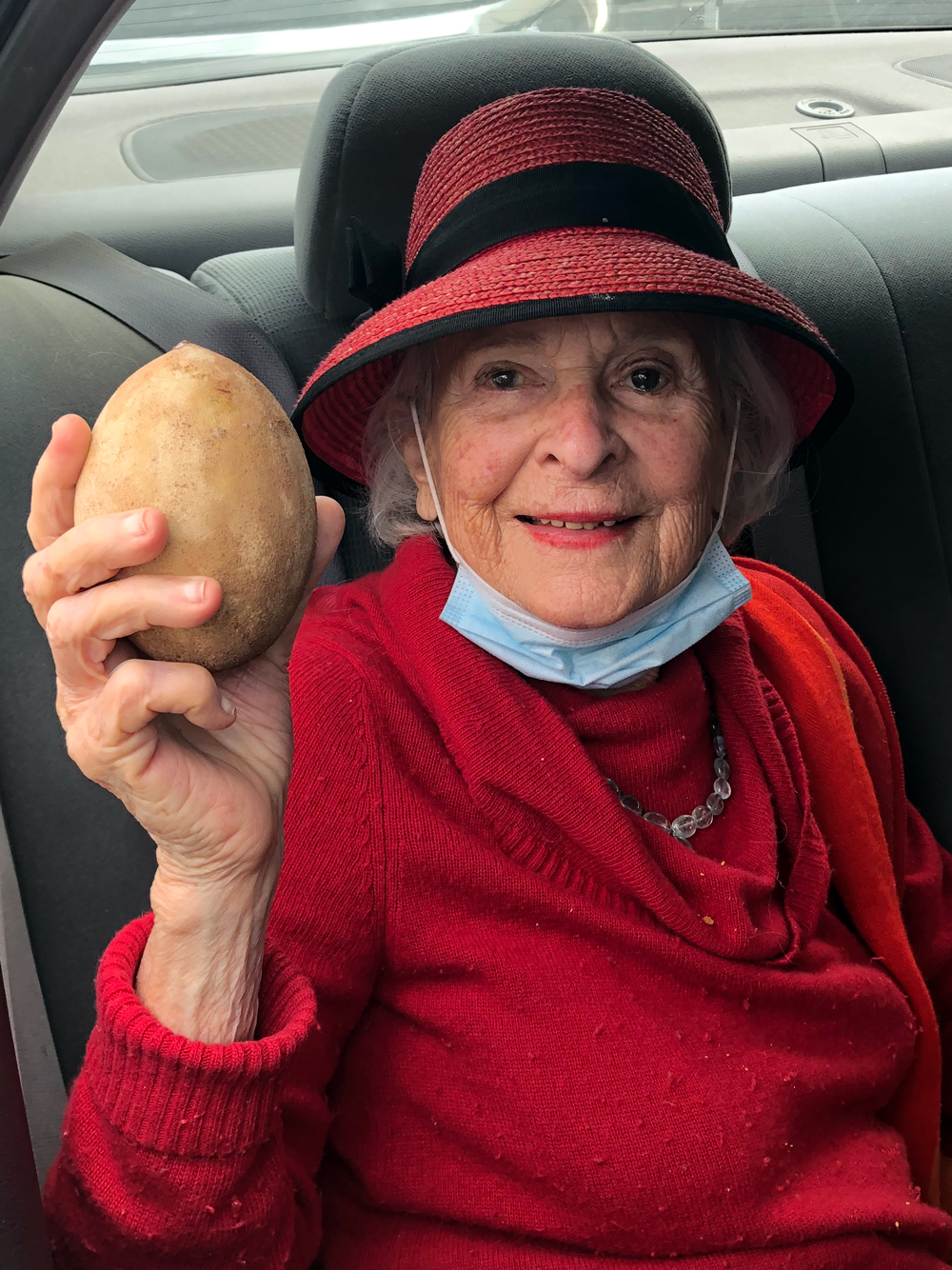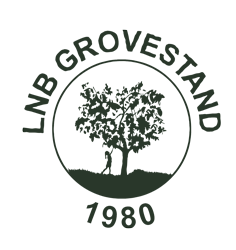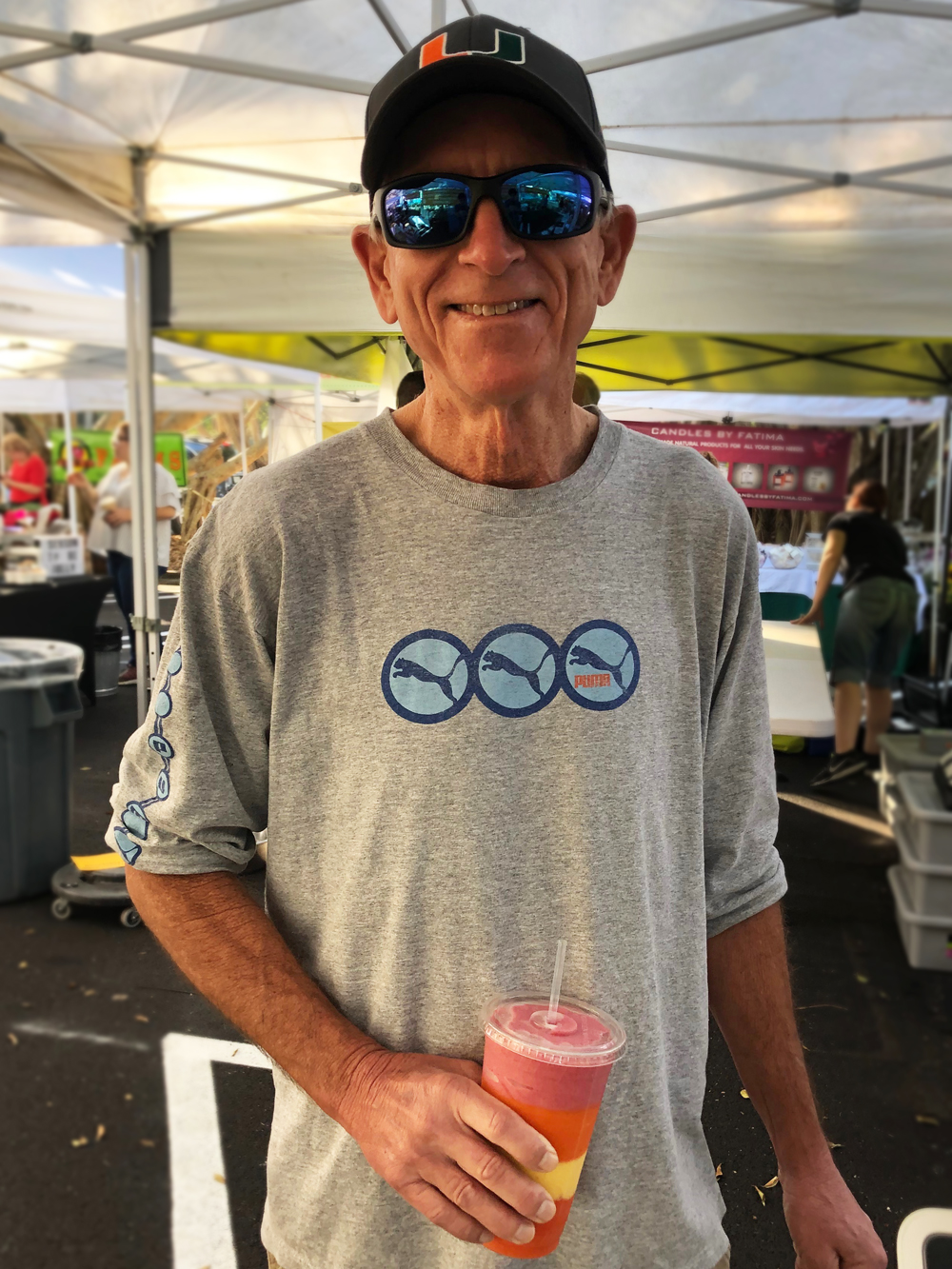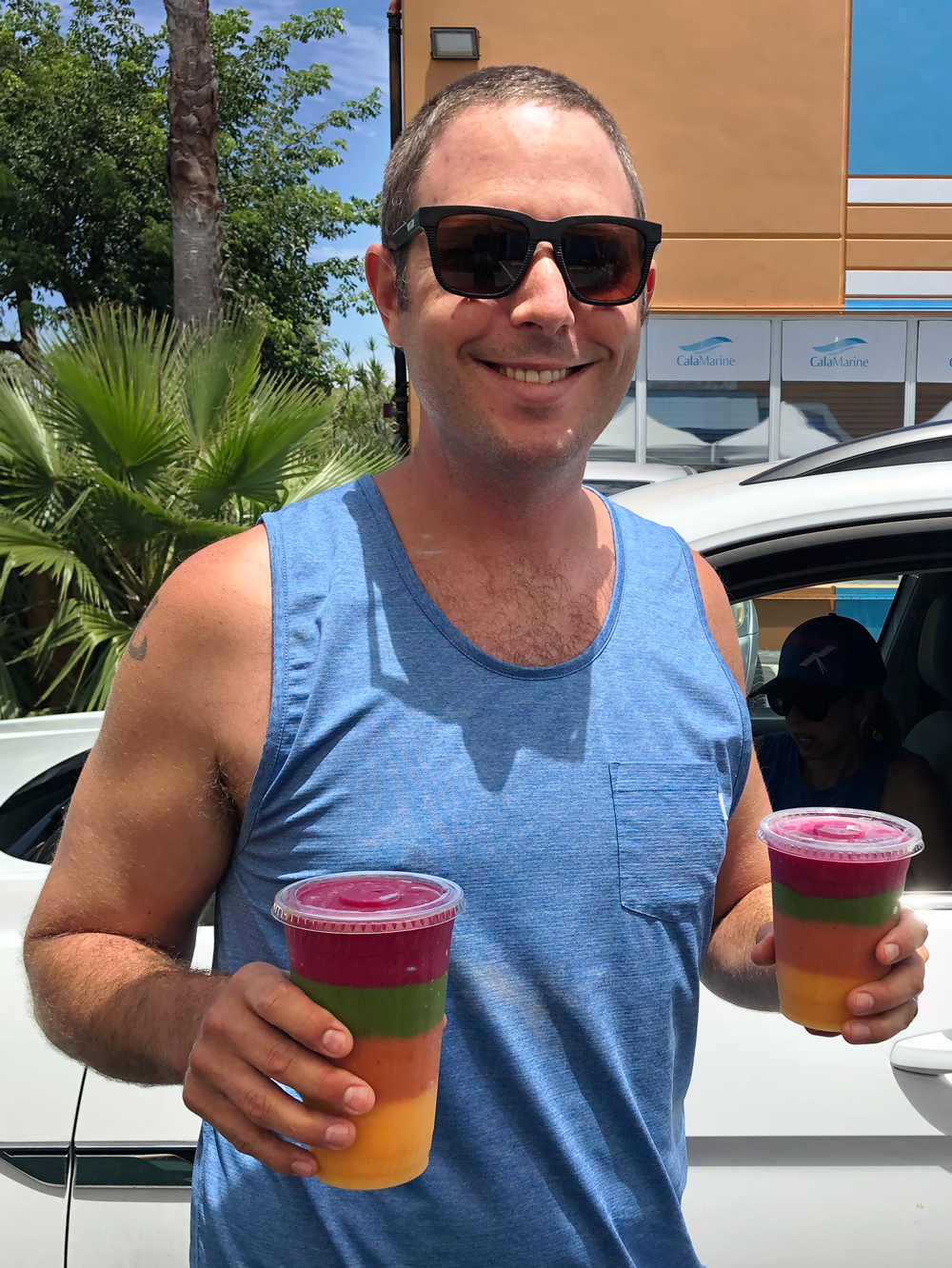
Ruth
Name:
Ruth
In what part of town do you live?
We live in one of the oldest sections. It goes back to the early 20th century called Spring Garden, and it’s on the Miami River. It has beautiful homes and moderate homes. We are trying to keep it the way it is, without the density of buildings. My grandparents moved here in 1922 and bought the house that we’re now living in.
Would you tell us a little bit about yourself?
I’m 97. I still like to eat. I play the piano every day. I have good children…They never went to jail.
Where did you grow up?
My family was from Key West and I was born there and six months later moved to Miami. Miami was a town. Our neighbors did not have locked doors. That was a good feeling. You could walk at midnight without fear, but there were two negatives. One was anti-Semitism. The second was segregation. Some places would say ‘No Jews, No Dogs.’ It was very strange to live that way, knowing that you weren’t wanted in certain places.
Do you remember when that changed?
It came about slowly. I’m talking about the Bath Club and La Gorce Country Club. Now, it’s all legal. In the 60’s they had to take down their screens and let people in. It may have been even later.
How has piano played a part in your life?
I started playing at five. My mother never let me give it up. Now I have it at this very old age and it’s kept me going instead of sitting in a wheelchair.
Are there certain people or moments that stand out in your mind when you think of your path?
When I was eight, I studied with Mana-Zucca, who at the time in the thirties was our leading salon impresario. She would bring down to Miami for the season, in her mansion-auditorium of a house, people who were famous and local people who were very good. I studied with her. She let me play on the programs. One time I was wearing stockings and I made a mistake. She said, ‘you see, you don’t wear stockings when you play.’ She was very influential because she was strict. She said ‘you’re talented but you’re lazy.’ Eventually I studied at the University of Michigan and we had classes with Arthur Schnabel. I would say, when you keep going, you have to work on your perfection of technique daily or it runs out of your hands. At this age, that’s what I try to be disciplined for.
Were you driven by Mana-Zucca’s comments?
I think so. I remember having a saying that said, ‘failure leads to success.’ I remember that I had a session at the University of Michigan for the teacher and other pupils. I played so poorly that he said, ‘you sound like you’re playing with dirty clothes.’ I left that day, took a long walk and decided I had to retrain my thoughts. It did help because we had a lot of concerts to get our degree.
How do you experience a new piece of music?
I hear the title or if I do not hear the title and I’m not familiar with it, I keep looking for lead motifs that will help me. I think that Chopin is an obvious case because unlike Liszt he takes little places that are not obvious, and he moves and modulates, and it is beautiful. I have played Chopin’s Barcarolle, and I think I have been trying to learn it for 75 years. It has many different melodic ideas that keep coming back in different rhythms and it builds up to a very fast ending.
We have attended a music salon at your home. It was a wonderful expereinece. What types of salons are you hosting now?
We are having one every Wednesday night for the young rising stars. We decided that they were not being exposed with this malaise. So at 6:00 PM, every Wednesday night, we begin with either music or theater. We had art the other day and all of the participants came from the New World School of the Arts – which is our Julliard of the south. I would say that the young people have taken it over. They’re in charge.
If one wanted to host a salon, what advice would you give?
Do you have an instrument, a piano? That’s a good starting point. What you can do is invite some artists over. Afterwards, have some pizza, a bit of wine, and everybody can congregate. Right now, it’s difficult so I would think that you have just a few people. It’s a nice way to entertain.
What motivates you to do so much?
At this age it’s difficult to explain, but I keep forgetting how old I am. That’s the only way that I can get up in the morning. I know I have things I must do. Besides going to the doctor, I like to keep up a social relationship with old time friends, who are mostly younger. We have a good circle. If we can’t see each other now, we’re working towards the next day.
You have an inspiring way of discovering and encouraging talent that may not have the opportunity for exposure. These days, it is with young artists at your weekly salon. In the past you have broken barriers for racial equality through music. Would you share about this work?
In 1951, we started the first integrated conservatory. It was apparent at that time that gifted young black students were not accepted at the University of Miami or even in public. It was time to have a school that would let them learn with students that were white. A place where talent was paramount, not race.
How are things now?
I don’t think we’ve made that much progress. Legally everybody is free to go, but I think that the black community is still in fear. Neighborhoods are still segregated and people are suffocating from injustice. I can’t imagine because I’m not black, but I know that when we had the conservatory, there was a good feeling.
How can we make it better?
I think that we must keep integrating schools. But I don’t think it’s enough to say we’re integrating. Also, the school system is not manifesting enough cooperation with some of the black schools like Booker T Washington. They are not taking care of the roadways, the walls, the structure. I think that they are doing other things then giving to them. That has to be changed.
You’ve been to our drive-thru a few times. What’s that like?
Oh, I love it. We’re subscribers! When we come to your place, we know we’re going to get exotic fruit, and homemade ice cream and cookies. I’ve never heard of a place where they have all that. Congratulations!
What are your favorite things to pick up?
The Rainbow Smoothie. And those delectable cookies. I took them to a friend’s home for a small gathering and I couldn’t take any of them home.
Are there any restaurants that you have been going to or are looking forward to returning?
I think a couple of the restaurants on the Beach are certainly accessible. Joe’s and the restaurant across the street from it. I’ve been waiting for the reopening of the Lobster Bar on 4th street. That was our favorite.
What’s Miami’s best kept secret?
Your stand is one of them. Also, your father is one of our prime teachers. I don’t know if many people have heard him lecture, but they should. And he’s now teaching on Zoom.
Do you have any favorite places in Miami, any locations that you enjoy going to?
I used to love to go to Bayfront Park. It’s gotten a little too commercial so that you can’t just walk in and sit down where you want to. Another favorite is going to the old Olympia Theater where we used put on a program called the Lunch Time Series that Miami Dade sponsored. Taking walks to the Bay is now encroached with tall buildings and you cannot see the ocean anymore. We used to be very tropical, and now those places are blighted.
What for you is a worthy splurge?
Ooh, that’s a good one. It used to be buying dresses in New York. Now it’s trying a good restaurant.
You always have a distinct elegance. What influences your personal style?
I wear the same dress twice and if people say it’s okay, I keep wearing it. I found a place in New York called a Imell, which is a Japanese dress shop on Madison Avenue and you go into the basement of the store and there are all the summer clothes. They had very nice dresses that don’t bind to you, they are free form. And I have some of your jewelry designs too. I have that long beaded chain. What is that made of?
(W) It is large ancient rudraksha seeds and sterling silver.
(RG) It’s so dazzling. I wear that when I have a long dress that needs a little bit of allure.
What community groups are important to you that you might promote or share?
I’ve always been a follower of the Salvation Army. Also Emily’s list. To help the ACLU is automatic. They are down on all the things that are unjust. And, everything that has to do with eyes because of my vision problems.
Is there a question, a challenge, or words of advice that you would like to pose to the community?
I ask people, ‘Did you study this or that?’ They say, ‘I used to, but I stopped.’ I think you must have a lot of discipline to keep going with certain things because you’re going to need them later. And if you give them up, you’re going to be in that chair. Even though your body may not frolic anymore, you still have your mind.
Is there a question that you would like to ask us?
(RG) What is the initial inspiration for this project? How did you start to call people? How is it coming along?
(A+W) It started over three years ago. This is our 183rd interview. The initial inspiration was Lois Weisberg, Adena’s grandmother. She was a famous connector, she also inspired Malcom Gladwell’s book ‘The Tipping Point.’ She said we needed a poster board at the market with customer names and what they did so that we could introduce customers to each other. That poster board became this newsletter. The connections we hear about each week lets us know that it’s working.
(RG) I think what you’re doing is so caring. I like to be included.
Any last thoughts?
Well, some people will say, ‘Oh, you don’t look more than 96.’ It’s the passion that you acquire over the years and maintaining sociability. Keep in touch with all kinds of people, they don’t have to be the same social level, or interest level. Keep knowing the same number or more, and don’t block them out as you get older.
Related Posts
Leave a Reply Cancel reply
You must be logged in to post a comment.



